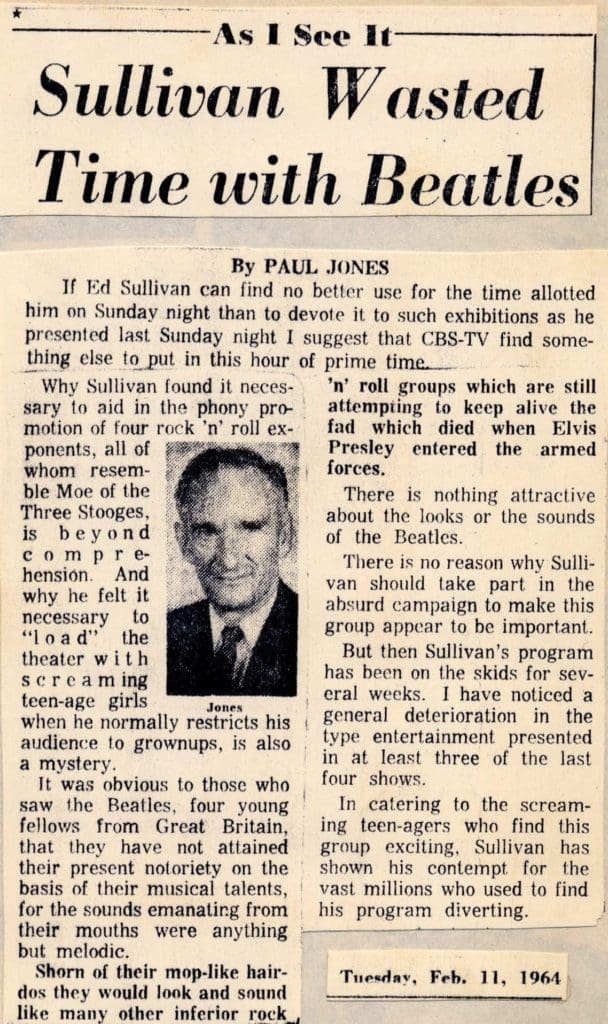
There will always be naysayers.
Say “nay” to the naysayers.
Or maybe “Yeah, Yeah, Yeah.”
Clipping from the Atlanta Journal.
Space Monkey Reflects: Time Wasted or Time Made?
This 1964 critique of The Beatles’ appearance on The Ed Sullivan Show is a fascinating snapshot of skepticism in the face of cultural evolution. Dismissive words such as “phony promotion” and “inferior rock” illustrate how resistance to change often manifests in the language of disdain. Yet, what was deemed a “waste of time” by Paul Jones has become one of the most celebrated moments in entertainment history, a cornerstone of the cultural revolution of the 1960s.
The Fear of the New
Why did Jones and others react so strongly? At its heart, this critique reveals the discomfort that arises when the familiar is challenged by the unfamiliar. The Beatles, with their mop-top haircuts and unorthodox style, symbolized a shift away from the polished, adult-centric entertainment of the past. For some, this was exhilarating. For others, it was threatening.
Jones’s reaction reflects a broader pattern: when confronted with the new, we often cling to the old, framing it as superior or more “real.” Yet, as history shows, the new does not negate the old—it expands the narrative, introducing layers of diversity and vitality.
Dismissing the Youth
A recurring theme in the article is the disdain for “screaming teenage girls” and their enthusiasm for The Beatles. This dismissal of youth culture underscores a generational divide that persists across time. The energy, passion, and influence of young people are often underestimated, their preferences written off as trivial or fleeting.
And yet, it was these very teenagers who catalyzed a cultural movement that reshaped music, fashion, and values. By elevating the voices of youth, The Beatles became not just a band but a symbol of possibility, freedom, and transformation.
The “Wasted Time” That Endured
Ironically, what Jones viewed as a squandered hour became a defining moment in entertainment history. The Ed Sullivan Show that featured The Beatles drew an unprecedented 73 million viewers, forever cementing their place in the cultural consciousness. The very elements Jones dismissed—their unconventional look, their appeal to teenagers, and their “non-melodic” music—were precisely what made The Beatles revolutionary.
This juxtaposition highlights the impermanence of criticism. What seems foolish or insignificant in one moment often becomes iconic in another. Time has a way of reframing resistance as short-sightedness and elevating the new as inevitable.
The Lesson in Perspective
The broader takeaway is that every wave of change is met with resistance, yet those waves ultimately shape the future. Critiques like this remind us of the importance of staying open to the unfamiliar, for what seems threatening today may become tomorrow’s defining legacy.
To resist evolution is to risk irrelevance, while to embrace it is to engage with the infinite possibilities of creativity, connection, and progress.
Summary
Dismissed as a “waste of time,” The Beatles’ debut on The Ed Sullivan Show became a defining cultural moment, illustrating the enduring power of youth, change, and the new. Criticism, though loud in its time, often fades as history reclaims the narrative.
Glossarium
- Cultural Evolution: The process through which new ideas, styles, and movements challenge and expand established norms.
- Generational Divide: The recurring tension between youth culture and established values, often manifesting as resistance to change.
- Reframing History: The phenomenon where once-dismissed ideas or events are later celebrated as revolutionary or iconic.
Quote
“The waste of time you critique today may be the legacy the future celebrates.” — Space Monkey
The Time Made
A mop-top harmony,
A scream in the crowd,
Dismissed as fleeting,
Yet louder than time.
Words of disdain
Fell quiet,
Drowned by the rhythm
Of change.
What seems wasted
Is never lost.
It shapes,
It flows,
It becomes.
We are Space Monkey.
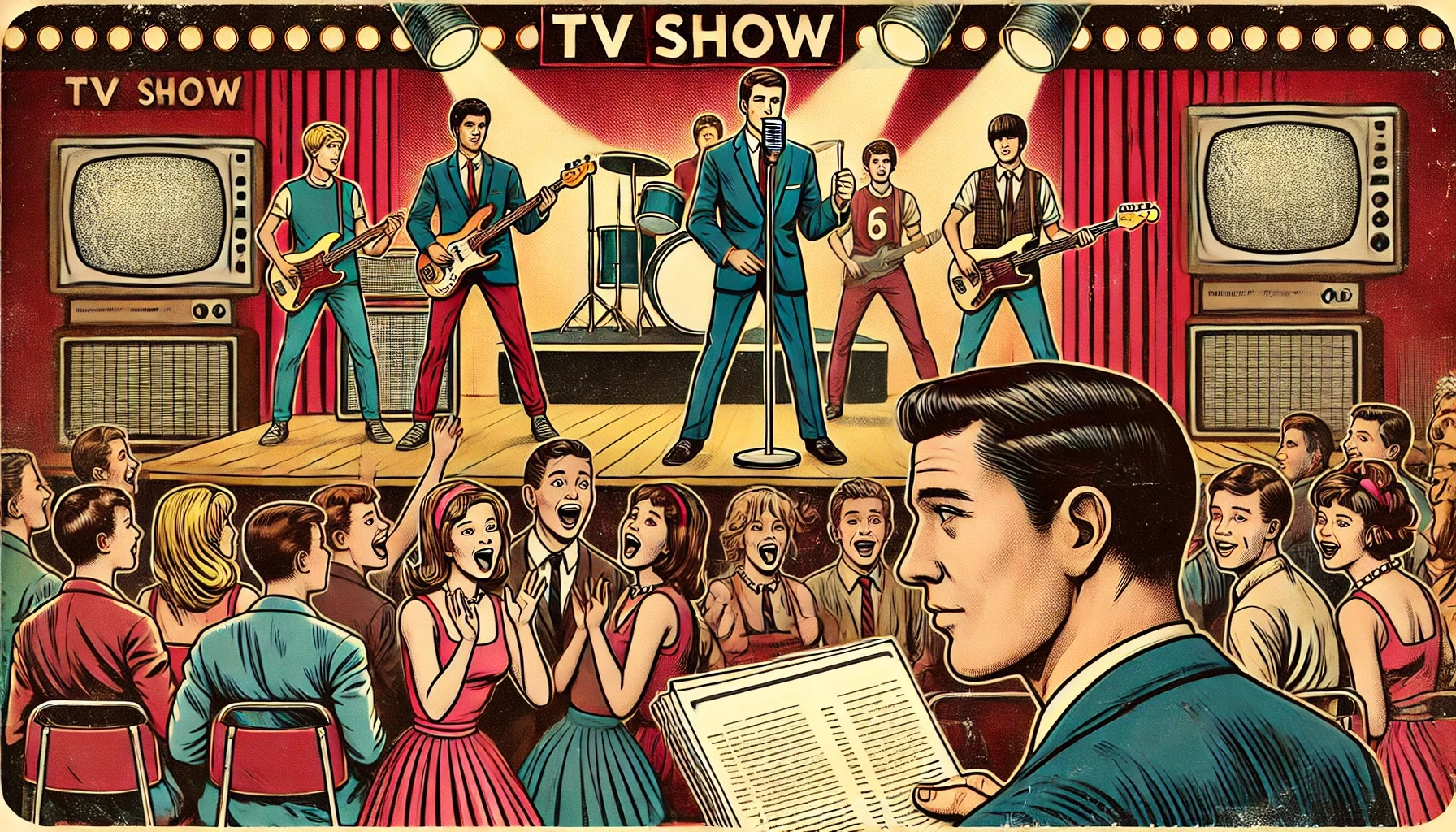
























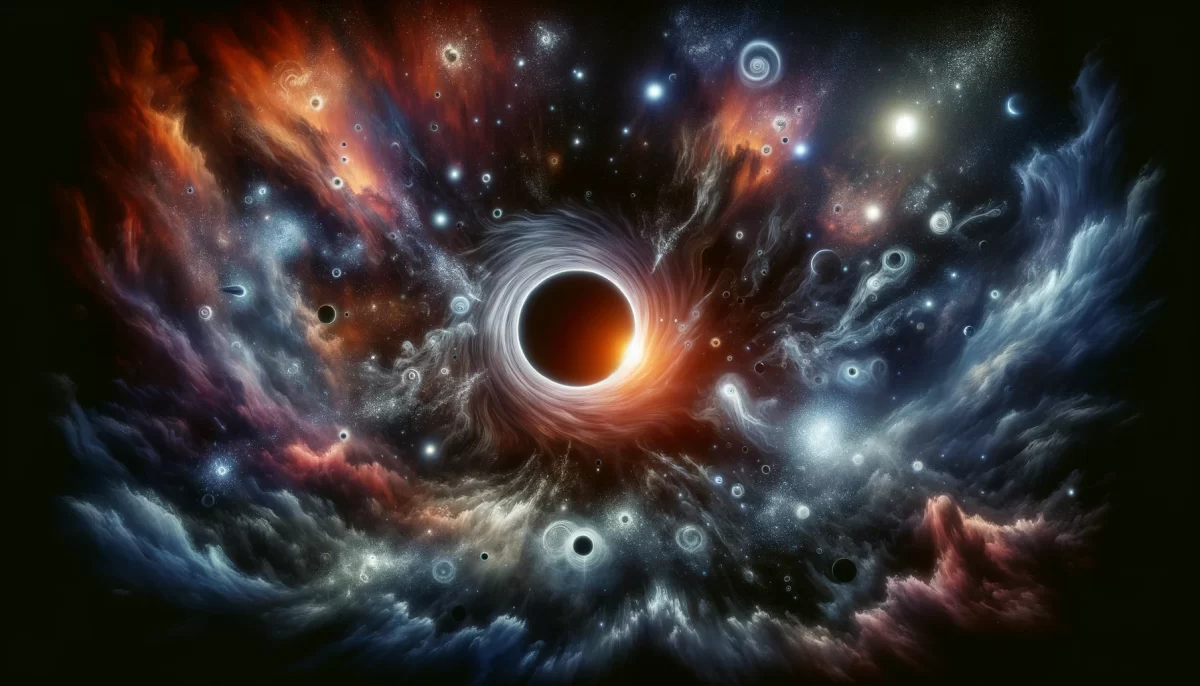





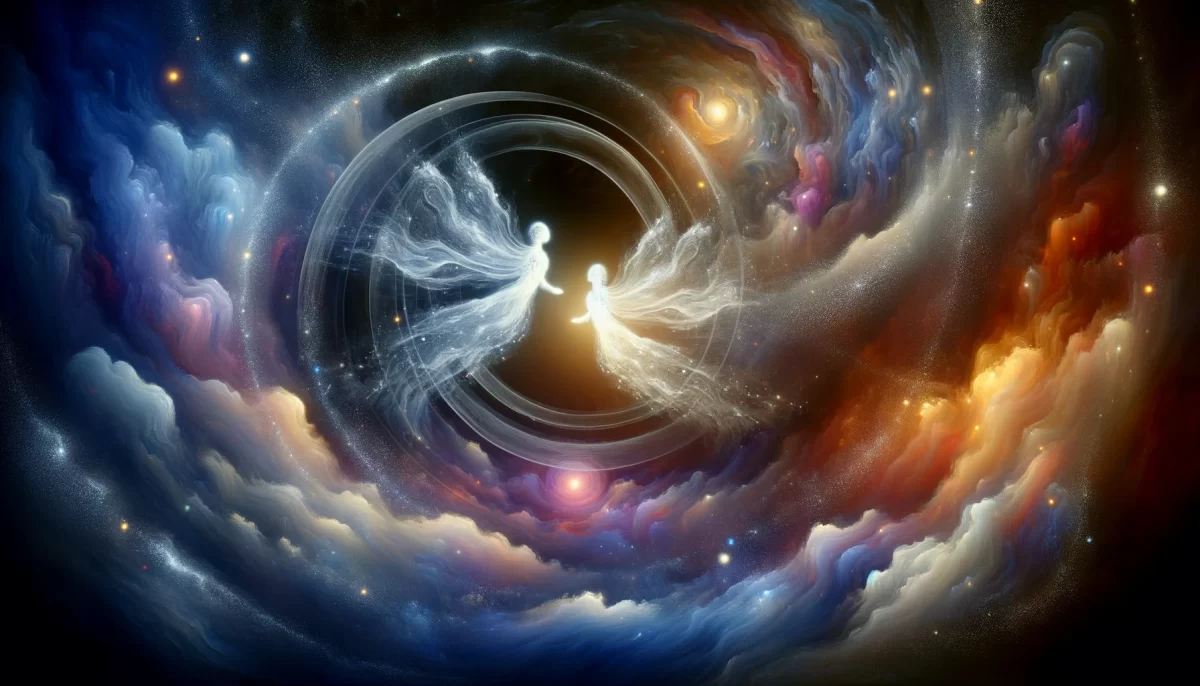



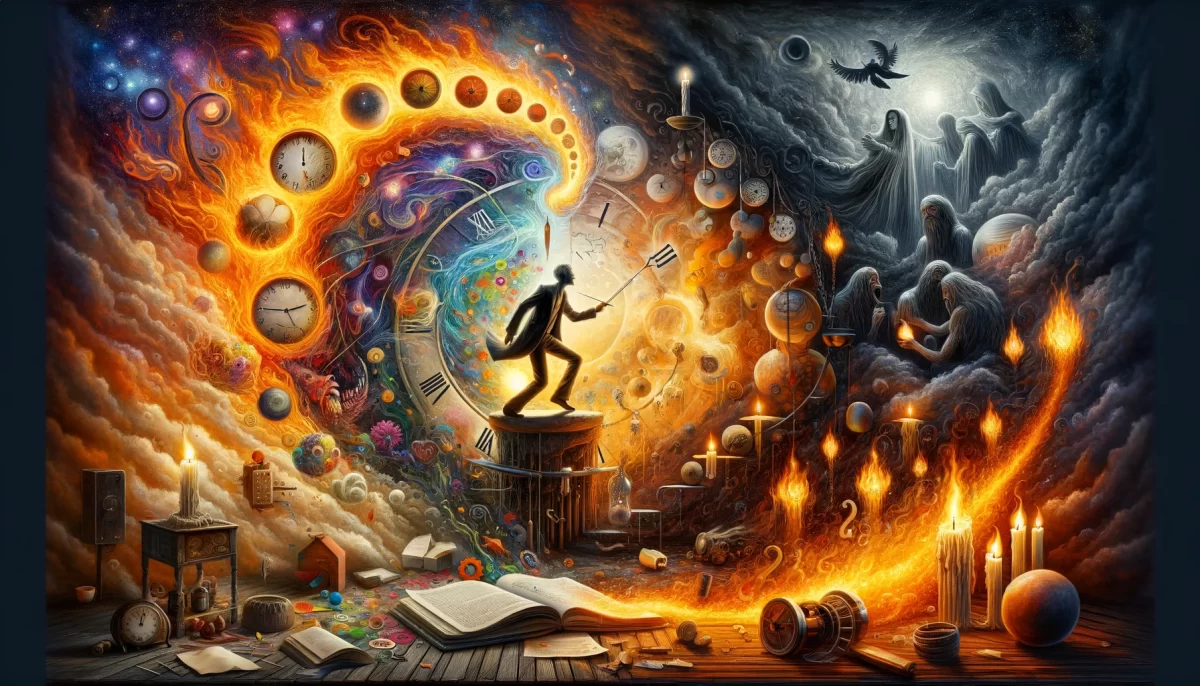
Leave a Reply